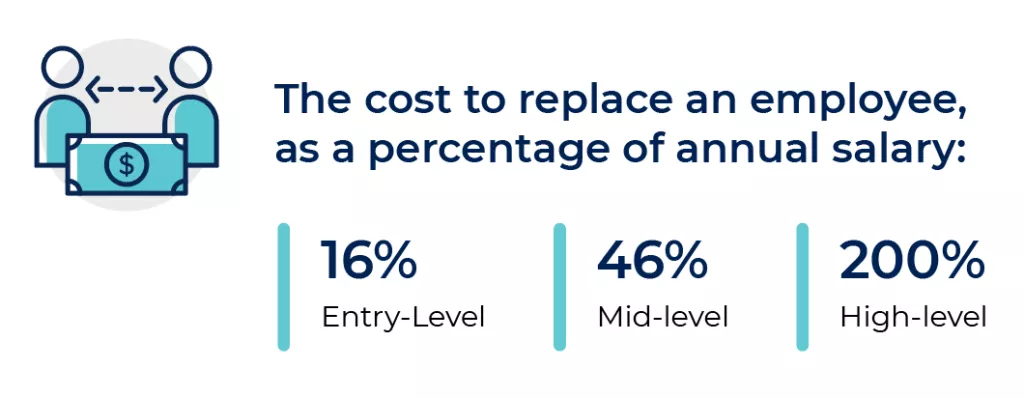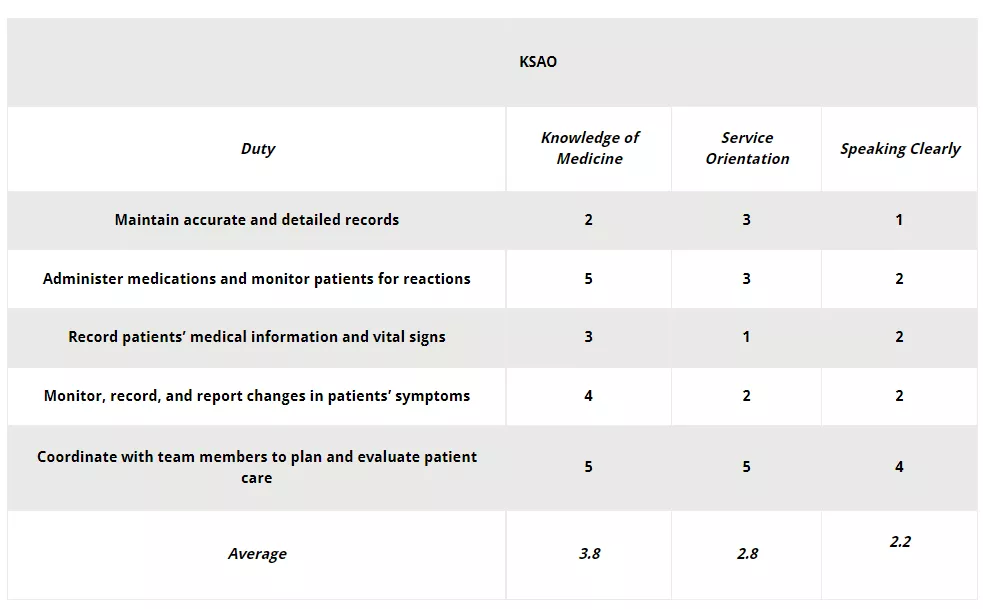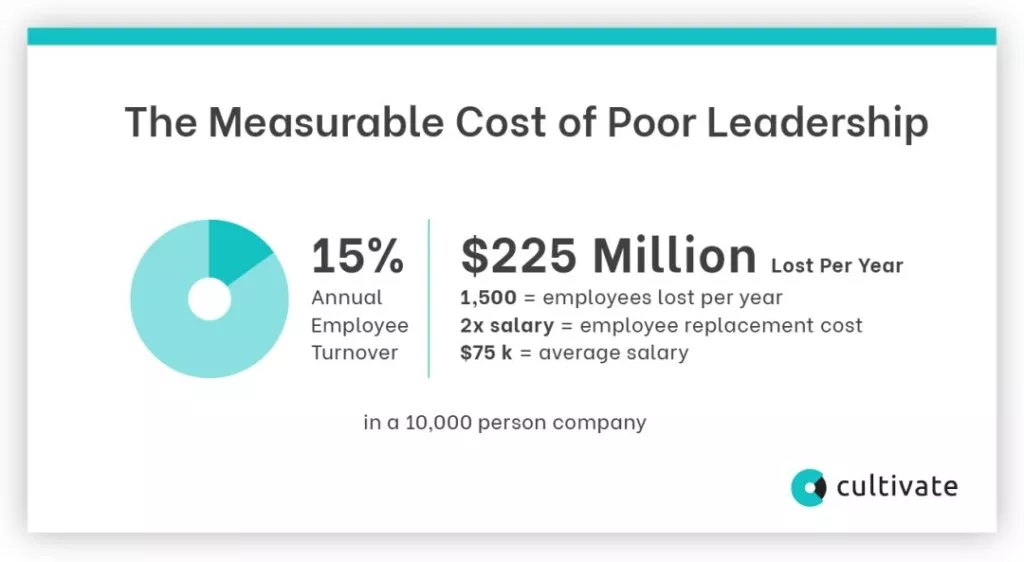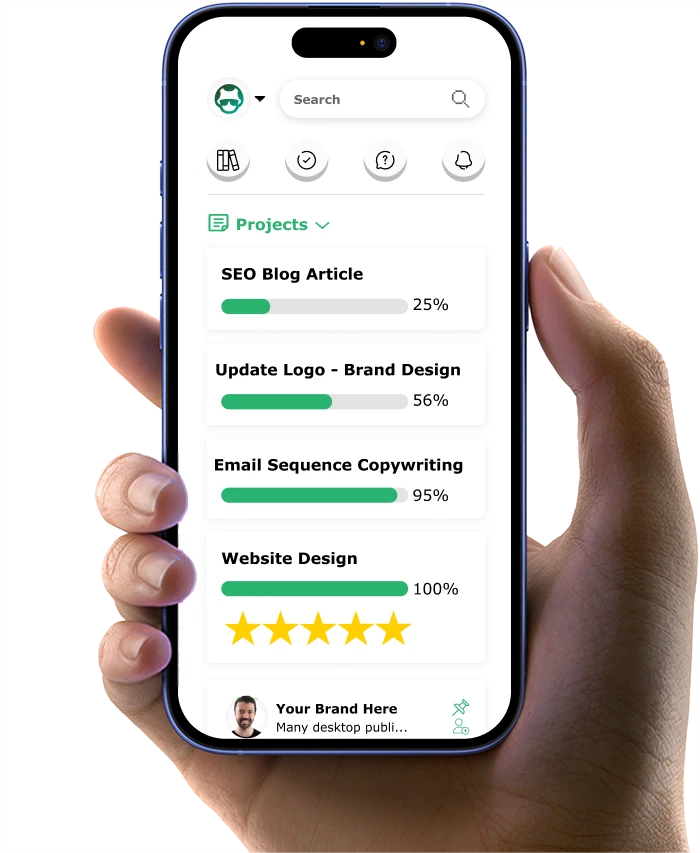Dodge Bad Hires with 11 Smart Industrial-Organizational Psychology Tips ❌

To anyone who’s a war film buff, you’re probably familiar with Terrence Malick’s WW2 drama, The Thin Red Line(1998).
About halfway through the movie, Captain Staros disobeys orders from Lieutenant Colonel Tall, played by the great Nick Nolte.
His orders are to take a Japanese hill.
But Staros refuses.
Instead, he decides that a flank (move around and attack from the side) is the best option.
To nobody’s surprise, Tall gets agitated with Staros (he had a few veins sticking out of his forehead).
Tall gets so angry that he relieves the Captain of his command.
And Tall goes on to tell Staros that he’s too soft-natured to lead the company.
Granted, Staros didn’t want to lose any more men.
But his resistance to the chain of command ran contradictory to what a WW2 Captain was expected to do.
Sometimes, the wrong person gets the job, in this case Staros in the view of Tall.
It could be a personality problem.
Or a motivational issue.
Or something else.
Luckily, industrial-organizational psychology (I-O) helps us correctly match the right people with the right job.
Ever had an experience like Lieutenant Colonel Tall’s?
Well, you can use I-O psychology to avoid placing the wrong people in a job and to avoid bad hires entirely!

This article outlines:
- The meaning of I-O psychology
- 11 ways it can help you hire the right candidates
- Real-world examples of I-O theory in practice
And, don’t worry, I’ll avoid the crazy vocabulary!
In a rush? Want to download this article as a PDF so you can easily take action on it later? Click here to download this article as a PDF guide.

What Is Industrial-Organizational Psychology?
I-O psychology studies individual and group behavior within organizations.
In general, the main goal of I-O psychology is to enhance an organization’s productivity.
Usually, the organization refers to a workplace.
And the term “productivity” can take on various forms.
Although this article focuses on the hiring process, I-O psychology also focuses on other aspects of a workplace.
Below are some of the following non-hiring areas I-O psychology helps with:
- Improving employee performance
- Providing a healthier workplace environment that reduces stress and burnout
- Identify and train promising employees for leadership roles
- Develop legally binding compensation/promotion policies
- Create a culture shift that makes a positive impact
You can think of I-O psychology as an extension to human resources management.
Usually, they’re hired as outside consultants but they apply a psychological lens to the same organizational goals that HR professionals seek to accomplish.
For hiring purposes, I-O psychology studies the best ways to attract and retain the most qualified candidates.
Whether it’s what to write in a job description or choosing the personality traits that matter most, an I-O lens works toward finding the right person-job fit.
And not doing so can be costly.
According to staffing company Criteria, the cost of replacing an employee can be up to 200% of the annual salary for high-level positions.

Knowing that, make sure you hire the right employee in the first place.
So let’s dig into the first way I-O psychology enhances the hiring process.
#1 How to Use I-O Psychology for Hiring: Perform a Job Analysis
A job analysis explores which tasks and attributes get prioritized for any given role.
Then, HR departments can use this information for staffing decisions.
There’s two main theories of which job analysis is carried out:
- Task-oriented method focuses on job duties
- Worker-oriented method prioritizes human attributes
So for task-oriented analysis, you prioritise what behaviors the job entails.
On the other hand, worker-oriented analysis focuses on what human attributes are required to thrive in the role.

Next, we’ll analyze subject matter experts (SMEs).
SMEs are your best employees.
So you want to compile all their KSAOs.
That is, their Knowledge, Skills, Abilities, and Other characteristics.
Then, choose candidates who match your SMEs.
Managers can gather this info with an I-O psychology application.
Use interviews, questionnaires, surveys, and observation to study your SMEs.
Feedback from colleagues can also be insightful because employees can be biased about their roles.
A rating scale determines the most essential factors for a new hire.
Take a look at this KSAO table for nurses to see how it all comes together

You see how each KSAO is weighed differently depending on context?
Because the reality is, keeping notes in a database doesn't require excellent verbal communication skills.
In one example of SMEs being used is when staffing company, Adecco, helped a manufacturer increase placement by 42% in one month using this type of job analysis.

#2 How to Use I-O Psychology for Hiring: Write the Perfect Job Description

According to Indeed, over half of all job seekers find job descriptions influential in their application decisions.
And 45% of hires come from career sites and job boards, per Jobvite.
For this, you can use your subject matter experts (SMEs) for developing accurate job descriptions.
If you’re trying to fill a sales position, speak to your top earners.
And ask what kind of thinking processes lead to more sales closings. Or what kind of personality traits help them succeed.
What are their key motivators?
Then, use this SME insight and apply it to the job description to attract qualified applicants
That way, you’ll attract candidates who are like-minded with your best earners.
And in case you don’t know where to find the best place to post your job opening, read about “19 Free and Affordable Job Posting Sites to Hire the Right Team”.
#3 How to Use I-O Psychology for Hiring: Find the Right Leaders
Leadership can make or break your organization.
Without the right leaders, your bottom line will suffer.
According to digital leadership platform, Cultivate, the cost of bad leadership leads to higher turnover.
Even worse, it means a loss of $225 million per year in large companies.

There are several known leadership styles.
Here are a few:
- Transformational - Inspires subordinates & invokes emotions
- Authoritarian - Confident & defines clear guidelines
- Laissez-Faire - Doesn't micro-manager, gives freedom to competent employees
- Transactional - Uses measurable goals and relies on rewards & punishments
- Participative - Employees are involved with decision-making
- Leader-Member Exchange - Strong & unique bond between leader & followers
But how do you decide which leadership style is best for your open position?
I-O psychology helps you answer that question.
Are you looking for a leader to inspire and be a culture changer?
If so, a transformational leader is what you’re looking for.
Transformational leaders are charismatic and creative. They give followers confidence.
Or maybe you want a leader that allows employees to weigh in on business decisions— then you’ll look for a candidate who has practiced a participative leadership style in the past.
You see, if you’re going to find the perfect leader for your organization, then you have to know the difference between leadership styles.
Then, you must choose the style that best matches the requirements of your open position.
From there, you’ll know exactly who you’re looking for in the selection process.
#4 How to Use I-O Psychology for Hiring: Enhance a Multicultural Team

Has your company embraced multiculturalism?
Because 81% of organizations have a diversity staffing initiative, according to talent acquisition firm Yello.
Moreover, remote work helps multicultural teams become a reality.
In fact, the Growbo team is 100% remote with employees worldwide.

But having employees from different cultures can present its own set of challenges.
That’s because different cultures have diverse learning styles, values, and motivations.
I-O psychology studies these cultural differences.
And you can use it to your advantage.
For example, Dr. Bryan L. Dawson and his colleagues say that a diverse staff reduces in-group behavior, thereby lessening the chances of any employees feeling ostracized.
Furthermore, a study from Ben-Gurion University of the Negev found that emergent leaders are often the best fit for multicultural, virtual teams.
According to a study on cross-cultural teams at James Madison University, attitudes about work accounted for 30% of the challenges faced by faculty.

And another thing I-O psychologists study are expatriate workers.
Is your company already overseas?
Do you plan to expand internationally in the future?
Well, you’ll want to make sure you hire people that will thrive in an overseas job.
Over the years, organizational psychologists have taken a close look at what characteristics to look for in a successful expatriate.
In 2007, six psychologists from the Netherlands put together a study into multicultural staffing.
And in it, they compiled an extensive literature review of previous studies.
The results were interesting.
For example, it’s been found that people who possess cultural sensitivity are more productive in overseas jobs.
Moreover, the ability to adjust to new living conditions and work environments are positively associated with higher expatriate performance.
Now, these do sound kind of like common sense things,
But that’s just hindsight bias kicking in.
It’s all too easy to simply hire a social butterfly with X,Y, and Z skills to work overseas,
But that individual could struggle with change. Or maybe the candidate lacks respect for other social norms.
Luckily, there’s plenty of I-O psychology studies published over the web that provide valuable insight into cross-cultural staffing for further education.
#5 How to Use I-O Psychology for Hiring: Administering a Cognitive Test
Administering a cognitive test to job applicants provides valuable insight.
Because applicants who score well on cognitive tests are likely to onboard faster.
And they’re more likely to learn new concepts and apply critical thinking skills.
According to staffing company, Berke, 85% of Fortune 500 companies use cognitive tests.
Luckily, I-O psychology insight provides the basis for this sort of pre-screening test.
It helps optimize the hiring process.
Furthermore, the late organizational psychologist Frank Schmidt had this to say...
“The purely empirical research evidence in I/O psychology showing a strong link between GCA [general cognitive ability] and job performance is so massive that there is no basis for questioning the validity of GCA as a predictor of job performance—a predictor that is valid and predictively unbiased for majority and minority groups.”

With that in mind,, Criteria has found that cognitive aptitude tests are by far the best predictor of job performance.

As an example, an insurance company that Criteria worked for used a cognitive aptitude test for salesperson screening purposes.
Managers grouped employees into these groups:
- Top producer
- Average earners
- Below average
Unsurprisingly, they saw a positive correlation between poor scores and low performance.

#6 How to Use I-O Psychology for Hiring: Matching Personality With the Job
Ever wonder if a candidate will feel at ease with a role?
Or if they have the right behavioral tendencies to succeed?
Well, an I-O psychology application will factor in certain personality traits that predict job performance.
The Big Five Personality Test can assess these traits.
It scores applicants on:
- Openness to new experiences
- Extraversion
- Conscientiousness
- Agreeableness
- Neuroticism

In one study out of the University of Florida, researchers tested the Big Five traits among employees at a gym.
They found that a low neuroticism score aligns with high employee performance, as did high extraversion.
According to Conte and Landy, there’s consensus within the psychological field that personality traits predict workplace happiness.
And in another study from Yang and Hwang, they looked at employees in the Chinese finance industry.
So what did they find?
That agreeableness was the biggest predictor of sales success.
And extraversion was the biggest influence on job satisfaction.
#7 How to Use I-O Psychology for Hiring: Find What Motivates the Top Talent
Not everyone has the same motivations.
And people occupy different stages in Maslow's Hierarchy of Needs.
Moreover, employees may deem a wide range of factors as important.
For example, one employee may think a manager is great because he or she recognizes hard work.
Meanwhile, another employee might not care about recognition. Rather, a manager’s commitment to developing employee skills is what’s most important to the employee.

Then there’s workplace factors that aren’t always that aren’t always the same for job candidates.

Usually, culture and values are the most important factors in workplace motivation, according to Glassdoor.
But not always.
For example, compensation isn’t as important to mission-aligned employees.
They’re looking to make a positive impact on the world, not get rich.

There's a literature review from the Journal of Applied Environmental and Biological Sciences on the topic of motivation in the workplace.
Researchers concluded that workplace motivation leads to better job outcomes and retention.
And unless you’re looking for a freelancer, employee longevity at your company is important, right?
So reach out to your SMEs, your best employees. Remember?
Understand what truly motivates them.
Use intrinsic and extrinsic motivators in your screening process.
And accommodate the top candidates if possible.

With this I-O psychology lens, you’ll know exactly what questions to ask and what kind of benefits/culture your ideal candidates seek.
Then, you’ll have a better chance at attracting the right job seekers.
#8 How to Use I-O Psychology for Hiring: Attract & Retain Qualified Candidates
Many employees are not happy with their current job and believe their skills are not appreciated.
70% of workers are actively searching for a new job.
Hiring top talent is challenging; they demand more.
They want perks, work-life balance, and growth opportunities.

Outstanding employees know they’re good.
And they’re hungry to grow.
So you should show candidates that you welcome that.
One major U.S service company struggled to attract qualified candidates and had high turnover.
Candidates and current employees thought advancement opportunities did not meet their standards, based on the company's career services resource.
To solve this, the company used jobs analysis.
The project team created 55 job families based on 600 roles within the organization.
They explained career advancement possibilities in a friendly way.
Candidates could see forward and lateral movements depending on their knowledge, skills, and abilities (KSAs).
The result was:
- 2.5 million career site visits
- 70,000 candidates
- 500,000 current employees engaged with career training
#9 How to Use I-O Psychology for Hiring: Making Sure Your Selection Process is Valid
A pre-screening process must measure the right things.
Want your pre-screening tests to predict qualified applicants?
Well, with I-O psychology, you can.
I-O psychologists measure the validity of your processes.
For example, they can validate or improve work sample tests.
In one project, researchers helped a community health organization plan a hiring process.
The researchers conducted a mock selection process of recently hired employees.
And what they found was that the current screening proposal had several flaws.
There was no consistency between the written tests and interviews.
This indicated sub-optimal reliability.
There was little correlation between test scores and interview scores. That suggested lack of uniformity.

Without using an I-O psychology lens, your company might just be winging it.
When your pre-screening process lacks validity, then you're being subjective.
And that will lead to under-qualified placements.
#10 How to Use I-O Psychology for Hiring: Choose the Appropriate Test Scores
Assessment scores decide who moves on in your selection process. It's the ultimate judgment criteria in early screening.
Deciding how to measure scores is not always straightforward.
Consider hiring an I-O psychologist to help you decide the best options for scoring criteria.
The two models that testing professionals use are:
- Multiple Hurdles - candidate must score above a certain level on each assessment
- Compensatory Model - candidate must reach a total score across all combined assessments
Sometimes, both are used simultaneously.
And the three scoring options are:
- Cut-off scores
- Ranked order
- Banding scores
Albeit, designing a pre-screening assessment process can be challenging.
But I-O psychologists will take your organization's unique needs into account.
They'll create a scoring standard that only qualified candidates will pass.
One organization wanted to improve its selection process for a graduate program. They accomplished this by adjusting the scoring method.
The cut-off score was turning down qualified candidates. And the interview score was not being weighed heavily enough.
But with an application of the I-O psychology lens, the school eliminated bottlenecks in the selection process.
Just below is a figure that shows the results of a study. In that study, business professionals, HR specialists, college faculty, and college students. Were asked how important they think I-O psychology is.

To learn more about skills tests, check out “Hiring System Simplified: 5 Ways to Hiring Right Candidates”.
#11 How to Use I-O Psychology for Hiring: Receive Federal and Local Legal Guidance
Many rules and regulations govern business.
So unfortunately, it’s easy to forget about employment laws.
For instance, in 2015, a Boston court ruled that the police lieutenant exam was illegal due to a bad and unthorough job analysis.
And another case involved the Seasons 52 restaurant chain.
The company paid nearly $3 million in fines for age discrimination.
If the Boston Police Department and a multi-million dollar company can get hurt by illegal hiring practices, then it goes to show that anyone could be at risk of violating a hiring law.
But hiring an I-O psychologist safeguards against this possibility.
I-O psychologists are well-versed in the legal pitfalls that so many promising companies find themselves trapped in.
By hiring an I-O psychologist, you don’t have to worry about expensive legal battles that could take years to see the light of day.

Conclusion
Download the "Dodge Bad Hires with 11 Smart Industrial-Organizational Psychology Tips ❌" so you won’t forget to take action on it later. Click here to download it now.
Without a solid selection process, your staffing strategy probably needs a lot of improvement.
Industrial-organizational psychologists are experts at designing optimal hiring methods.
They work closely with all stakeholders to decide the best course of action.
With a fresh psychological lens, you'll come away with a hiring strategy that attracts and retains your ideal candidate.
Also, you’ll avoid any legal hurdles you may be unaware of.
Does your marketing department need help?
Don't feel like waiting for the gradual approach of I-O psychology to find the best fit for your marketing position?
Growbo can help! We can do all your marketing for you!
Just ask any of our clients. They love our work!
Have you used I-O psychology at your organization?
Which part of I-O psychology interests you?
Let me know in the comments below.
Keep Growin’, stay focused.
Mark













